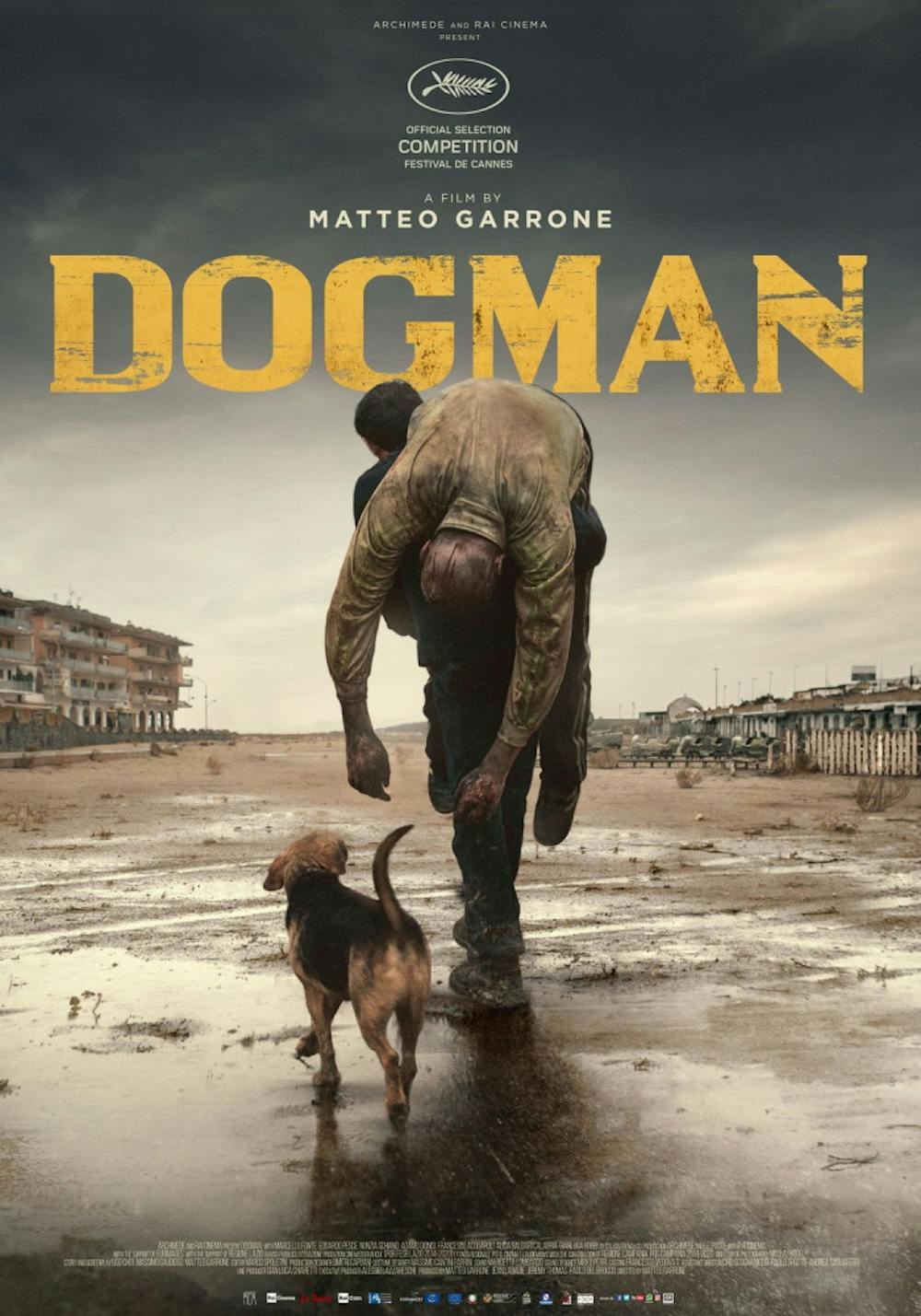When you think of Italy, what comes to mind? Idyllic sunsets on the Mediterranean? A gondolier rowing past old Venetian architecture? Or maybe just a steaming plate of carbonara. Whatever comes to mind, it probably doesn’t include a sinister, run-down town with a crime problem. “Dogman,” Matteo Garrone’s award-winning film, offers an honest window into a country often perceived as picture-perfect while telling a bone-chilling story of morality, revenge and the human psyche.
The film follows Marcello, a dopey but deeply kindhearted everyman who owns a dog-sitting shop in a small seaside town. His priorities are his daughter, his dogs and the good-will of his neighborhood — in that order. However, while trying to remain in everyone’s good graces, Marcello runs into quite a big problem in the form of Simone — the neighborhood criminal who snorts coke and gets into fights like clockwork.
While most of the neighborhood despises Simone, Marcello is more tolerant, either due to fear or his trusting personality (most likely a combination of the two). When his neighbors propose to hire a hitman to get rid of Simone, Marcello stays quiet. When Simone is shot and seriously wounded, Marcello pulls the bullet out himself. He even helps Simone on his numerous illegal outings and sells him coke on the side. That sounds bad, but stay with me.
There is a warmth that radiates from Marcello.
In fact, there is one scene which perfectly encapsulates his character. As Marcello is coming home from work, Simone pulls up beside him and asks Marcello to drive the van as Simone breaks in and robs a house in the nicer part of town. Marcello obliges, as any good friend would. As they drive back, Simone’s accomplice jokes about having thrown a noisy pet Chihuahua into the freezer so as to not get caught. This visibly shakes Marcello. After dropping off his fellow delinquents, Marcello speeds back to the scene of the crime, breaks back into the house and resurrects the frozen Chihuahua (who got the Palm Dog Award at Cannes Film Festival, by the way.)
The same kindness extends to Marcello’s daughter, whom he takes on scuba-diving vacations with the little money he earns. There’s an endearing scene in which Marcello holds his daughter, facing away from the audience, as they coast along the sea. Even with Simone’s looming presence, life doesn’t seem too bad for Marcello.
The turning point, and where Marcello’s story becomes much darker, happens when Simone bullies Marcello into betraying a friend in the neighborhood. The following day, Marcello is escorted to the police station and asked to give up Simone. Marcello refuses and is sent to jail instead of Simone, even knowing it would mean a year of his life and the comradery he so valued in his community would be lost.
When Marcello returns and tries to speak to Simone about the incident, Simone beats him to a pulp. Once again, we see Marcello holding his daughter on the sea, but this time he’s turned toward the audience, and we see his battered face. There’s a palpable change in the tone of the film, and the events following cascade into complete chaos. Inevitably, Marcello is driven to madness, and the result is so horrifying it’s hard to keep your eyes on the screen. And yet, you’re still rooting for Marcello; your heart hurts for him. You feel for him as you feel for a small child when they’ve accidentally dropped your phone in the toilet. Angry but understanding.
There’s an interesting dichotomy to Marcello’s character and his life. His actions are all at once good and evil, and the line between the two is barely visible. Not only can you justify and pity him, but you start to ask yourself if you wouldn’t do the same given his position. It’s a scary question to ask, and it’s even more frightening to see how fast the life he built was swept out from under him. It’s something reminiscent of “Death of a Salesman” — haunting, conflicting and simultaneously very real. It’s “life” in ultra HD, a resolution we often try to avoid when faced with reality.
Reel Critic: ‘Dogman’

01 DISTRIBUTION
Comments



